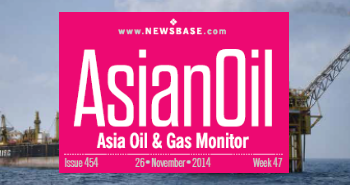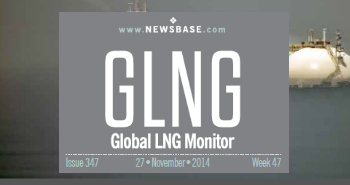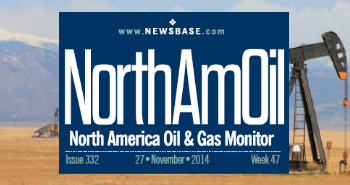Shell reportedly eyes BP takeover in $300bn tie-up
While Shell is on an upward trajectory, BP’s disappointing share performance has fuelled speculation that it could be targeted for takeover.
WHAT: Shell is reportedly considering an acquisition of UK peer BP.
WHY: The tie-up could create a tie-up worth $300bn in value, rivalling the size of US majors like Chevron and ExxonMobil.
WHAT NEXT: Shell has indicated it would rather focus on buying back its own shares, and a merger would likely face intense regulatory scrutiny.
A report that Shell is considering a takeover of rival BP have sent shockwaves through the global oil and gas industry, even though neither UK major has publicly confirmed the move.
Bloomberg reported on May 5 that Shell had been working with advisors on the potential deal but was waiting for further declines in BP’s share price and oil prices before deciding whether to go ahead with the move. According to sources who spoke with the news agency, Shell’s discussions in recent weeks
According to people familiar with the matter, Shell’s discussions in recent weeks have focused on the feasibility and merits of a bid, though no final decision has been made and no formal offer has been lodged.
If pursued, a merger of the two companies – both icons of the UK oil industry – would rank among the largest deals in sector history and would likely face intense regulatory scrutiny. Shell currently has a market capitalisation of close to $150bn, while BP’s value is just over $55bn, meaning a tie-up could create a combined entity with a value of roughly $300bn, rivalling the size of US majors like Chevron and ExxonMobil.
Both companies operate across the full oil and gas value chain, often collaborating or competing in the same regions. They are also partners in various upstream projects across the world, particularly in the North Sea, the Gulf of Mexico, Egypt and the Caspian region. They also both boast significant trading operations, particularly for LNG.
Shell and BP have so far responded cautiously to the takeover speculation. Shell CEO Wael Sawan said last week that he would “rather buy back” more of Shell’s own stock than launch a bid for BP
“We will always look at these things… but right now, buying back Shell… continues to be absolutely the right alternative,” Sawan told the Financial Times.
A Shell spokesperson, when asked about the Bloomberg report, stressed the company’s focus on internal performance. “As we have said many times before, we are sharply focused on capturing the value in Shell through continuing to focus on performance, discipline and simplification,” the spokesperson said, declining to comment directly on any merger talks
BP, for its part, has “declined to comment” on what it called market rumours and speculation.
Contrasting performances
Reports of potential merger talks between Shell and BP come amid a drop in oil prices, amid economic uncertainty triggered largely by the Trump administration’s tariffs and OPEC+ hikes to production. They also come as oil and gas majors face rising investor pressure to deliver returns, with both BP and Shell responding by scaling back their investments in renewables and low-carbon technologies, in favour of higher-return oil and gas projects.
Whereas Shell’s market capitalisation has soared in recent years, BP’s has declined by over 30% in the past year, fuelling speculation of a potential takeover. Investors have been underwhelmed by the company’s strategic direction, and the decline has been exacerbated by a fall in global oil prices. Brent crude is trading around the mid-$60s per barrel – down sharply from over $100 a year ago – undercutting revenues across the oil and gas industry. In the first quarter, BP reported a net profit of $1.4bn, down nearly 50% from $2.7bn a year earlier, as weaker refining margins and gas trading results took a toll.
The company also scaled back share buybacks this year amid the profit drop. BP’s deteriorating performance has left it trading at a relative discount in the sector, making it a tempting target in the eyes of some analysts. BP’s interim CEO Murray Auchincloss, who took the helm after the abrupt resignation of his predecessor Bernard Looney in late 2023, has been attempting to reset the company’s trajectory. In February, Auchincloss promised to “fundamentally reset” BP’s strategy, a shift that included easing some of BP’s climate commitments and refocusing on oil and gas projects to boost profitability.
The company pulled back on a prior pledge to sharply cut hydrocarbon production by 2030 – a plan championed by Looney – and signalled a more gradual energy transition to shore up its market value. However, this pivot toward fossil fuels has so far failed to revive BP’s share price. Some investors have grown impatient: BP faced a minor shareholder rebellion at its annual meeting last month, as climate-focused investors protested the rollback of emissions targets.
At the same time, activist shareholder Elliott Investment Management has built a stake just above 5% in BP and is pressuring the company to cut costs further and streamline operations to increase free cash flow. Auchincloss has already announced plans to sell about $20bn in assets by 2027 and to rein in spending in an effort to appease investors and “shore up” confidence.
In contrast, Shell has been on a steadier course, enjoying stronger financial performance and market support. Since taking over in early 2023, CEO Wael Sawan has emphasised capital discipline and higher shareholder returns, steering Shell to focus on its most profitable core businesses. The company has benefitted from this sharpened strategy: Shell earned $5.6bn in adjusted profit in the first quarter, down 28% from a year earlier but ahead of expectations. It also announced a new $3.5bn share buyback programme on the back of those results.
Sawan has repeatedly signalled that Shell will be cautious about large acquisitions, saying “we have to have our own house in order” before considering transformational deals. Under his tenure, Shell has prioritised debt reduction, cost cuts and what it calls “performance, discipline and simplification” in its operations. This approach has been rewarded by investors – Shell’s stock has risen roughly 20% since Sawan became CEO.








Follow us online